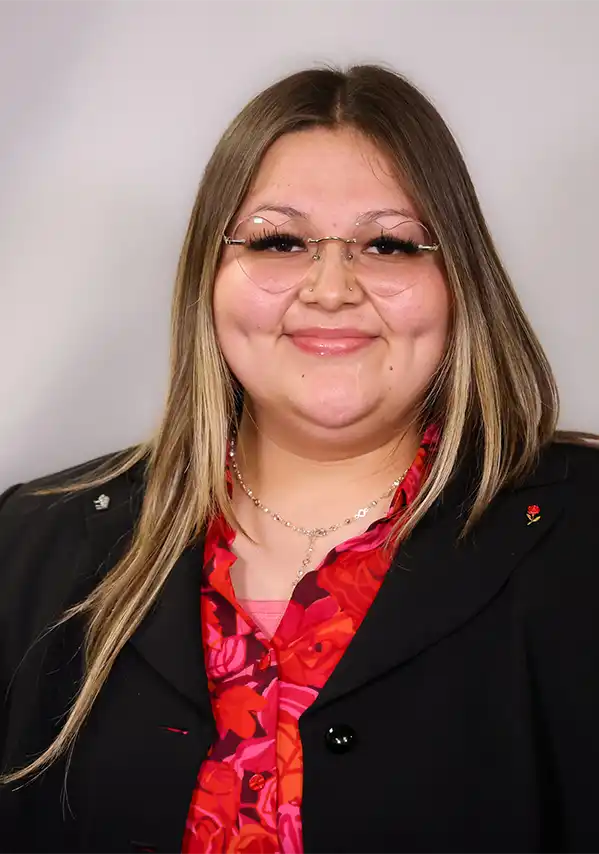Raven King
McNair Scholar 2024
- Major(s): Nursing
- Classification: Junior
- Anticipated Graduation Date: Fall 2025
- Career Aspirations: After attaining a bachelor’s degree, Raven plans to gain more experience in the healthcare field before continuing to pursue a master's degree in nursing. She intends to spend time as a nurse in rural areas and provide healthcare to individuals that are underserved in mental health.
“My favorite part of McNair was having the opportunity to go on a graduate school visit to Texas Tech, where we participated in an in-depth tour and conversations with staff in our specific colleges of interest. This was a great experience to gain more knowledge on different opportunities that are open to us as students. I got the opportunity to make a great first impression on individuals involved in the College of Nursing and Admissions, which may be useful in the future.”

“Lived Experiences of Foster Care Youths Who Aged Out and Made the Transition into Higher Education”
Faculty Mentor: Dr. Priscella Correa
In recent years, research on former foster youth who aged out and transitioned into higher education has continued to expand. Emerging into adulthood is a significant time in youths’ lives and is set in motion in the United States at 18. As of 2022, the statistical data indicates that 570,000 youth are in the United States public foster care system. Overall, foster youth face unique challenges and have unique needs, and understanding the challenges they face through child maltreatment or past traumas is crucial to determining what is helpful in their transition into adulthood. The barriers found in the transition into higher education included inadequate academic preparation, housing, financial instability, lack of emotional and social support, and ongoing mental health issues. Through collaboration within disciplines, the barriers that former foster youth face can be addressed, as education should be a route for success in all youth. The understanding of challenges and barriers is well-documented, and there is still more that needs to be known about foster youth lived experiences. Having first-hand accounts of these lived experiences of those facing transition would allow for additional pertinent information that could be used to assist those implementing programs for this population.
